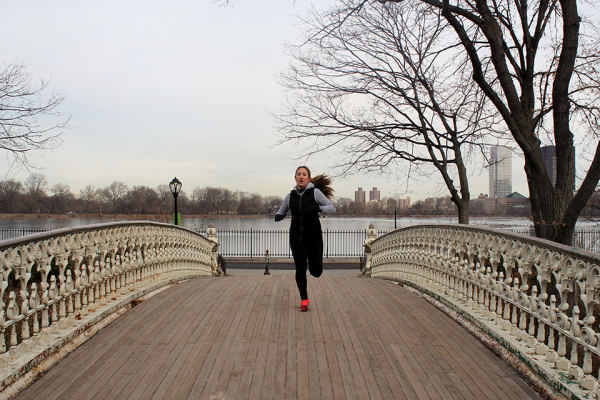Exercising Control over Depression
December 6, 2016
Scientists have long questioned how physical activity impacts mental health. Our physical state is just as important as our mental state and recent studies suggest a direct link between the two. It is possible that exercise may be an effective treatment for depression, or even stop it in its tracks. Stone Hocker, Fordham College Lincoln Center, FCLC ’20 exercises regularly, either at the YMCA or by running through Central Park. He noted, “A runner’s high is definitely real.”
According to the American Psychiatric Association, depression is a major disorder that negatively affects how one feels, thinks and acts. Symptoms include feeling sad, worthless or guilty, difficulty in sleeping or sleeping excessively, loss of energy and interest, fatigue and thoughts of death and suicide.
Depression is not only dangerous for one’s mental health, but it can have a major toll on one’s physical health as well. It has been linked to many serious health concerns such as heart disease, diabetes, obesity, substance abuse and suicide. Living a depression-free life not only puts one at a lesser risk for major illnesses, but allows one to have a better quality of life.
Joan Roberts, Ph.D., Professor of Chemistry in the Department of Natural Sciences, highlights the biological reaction of depression. “Depression and chronic stress result in the overactivity of the hypothalamus, pituitary and adrenal glands resulting in a release of excessive cortisol (the steroid stress hormone), which enhances depression and the possibility of addiction.” She added, “Excessive production of cortisol affects not only the brain, but a proper immune response.”
As depression results in loss of hope and energy, it becomes difficult for one to know how to feel better or even muster the motivation for change. This is a result of anhedonia, or inability to experience pleasure, is one of the most dominant symptoms of depression. It is defined by the National Center for Biotechnology Information as the reduced ability to experience pleasure. In other words, one loses interest in previously enjoyable experiences. Anhedonia embodies the seriousness of depression because it results in one’s withdrawal from relationships, ultimately leading to the harmful consequences of isolation.
Exercise is often recommended by doctors for patients seeking treatment for depression as it releases endorphins, which act as anti-depressants. Additionally, it is natural and doesn’t involve any medications. But what kind of exercise is most effective? According to Dr. Roberts, “one of the ways to decrease excessive cortisol release is by aerobic exercise. Aerobic exercise, such as running and swimming, has been shown to specifically dampen the excessive stress response which decreases depression, improves mood and enhances executive (logic and memory) thought processes.”
Exercise is not a cure-all for depression, but is nonetheless highly recommended for the positive effect it has on one’s body and mind. Hocker continued, “If I ever feel stressed, overworked or just strange, a run is almost always the cure for me. I think working out provides incredible psychological benefits on top of other health benefits.” Surely, depression cannot be conquered overnight. Rather, it is a slow and gradual process that involves working towards positive change and taking control of one’s mental state. Aside from exercising, there are many things you can do to escape depression, such as psychotherapy (positive thinking), engaging in pleasurable activities and even getting a daily dose of sunlight to spur happiness. A healthy balance between the mind and body can easily be achieved with time and care. Remember to be patient with yourself; feeling better takes time.









